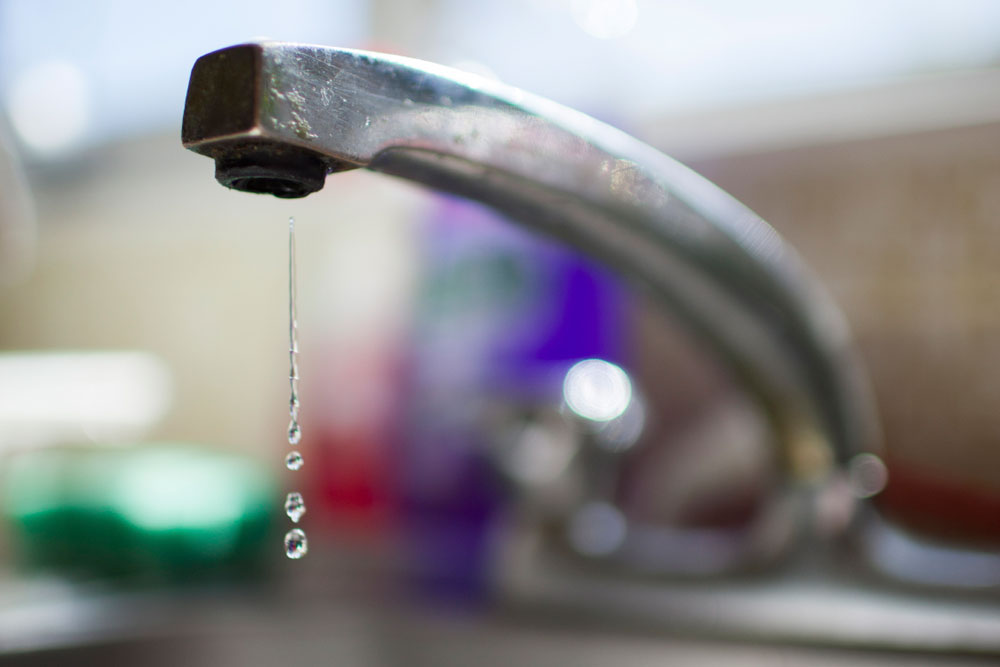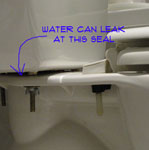5 Chief Triggers of Water Leaks
5 Chief Triggers of Water Leaks
Blog Article
The article following next relating to Where to Find Water Leaks is indeed stimulating. Don't miss it.

"Beware of little costs. A tiny leakage will certainly sink a wonderful ship." - Benjamin Franklin.
He couldn't have been more ideal due to the fact that water leakages in our residences cause a waste of sources, raising our water costs. This increase might appear negligible at first, it can lead to substantial expenditures that can break your bank. In addition to a boost in costs, water leakages likewise trigger undesirable organic growth, structural damages, and even electric dangers.
If you have a water leak isn't constantly easy due to being unable to see most of the pipework in your home, figuring out. If you have had a boost in your water costs recently, noticed water stains on walls and ceilings, scented poor smell, etc. You might want to consider requesting plumbing solutions to get it looked into.
There are numerous root causes of water leaks, and we have actually put together the common factors below. Check to see if you have actually had related concerns in your home lately.
Deteriorated pipe joints
Pipeline joints are the parts of our plumbing system where the pipes link. They are the weakest factor of our plumbing system. Therefore, they are a lot more vulnerable to deterioration. It is important to keep in mind that even though pipelines are made to hold up against stress and last for some time, they weren't created to last forever; for that reason, they would certainly wear away with time. This deterioration might cause cracks in plumbing systems. An usual sign of harmed pipe joints is excessive sound from taps.
High water stress
You noticed your house water stress is higher than typical yet after that, why should you care? It's out of your control.
It would be best if you cared due to the fact that your average water pressure should be 60 Psi (per square inch) and although your home's plumbing system is designed to endure 80 Psi. An increase in water pressure can put a strain on your residence pipelines as well as lead to fractures, or even worse, ruptured pipes. Obtain in touch with an expert about regulating it if you ever notice that your residence water pressure is greater than common.
Rust
As your pipework gets older, it gets weak and also much more vulnerable to rust after the constant flow of water through them, which can gnaw at pipelines and create cracks. A noticeable indicator of corrosion in your house plumbing system is discoloration as well as although this may be tough to discover as a result of most pipes hidden away. Once they are old to guarantee a sound plumbing system, we suggest doing a frequent examination every couple of years as well as change pipelines
Obstructed drains
Food bits, dust, and grease can create stopped up drains as well as block the flow of water in and out of your sink. If undealt with, enhanced pressure within the gutters can create an overflow and finish up fracturing or bursting pipes. To avoid clogged drains in your house, we advise you to prevent pouring bits away as well as regular cleansing of sinks.
Busted seals
One more reason for water leakages in homes is broken seals of house devices that use water, e.g., a dish washer. When such appliances are installed, seals are installed around water ports for very easy passage of water via the device. A busted seal can cause leakage of water when in use.
With little or no understanding of plumbing, understanding your home's plumbing system sufficient to deal with some of these problems (without effect) can be an inconvenience. Connect with plumbing experts in Pittsburgh, Providence, Rochester, and also environ today, and also they'll make those issues go away.
He couldn't have actually been a lot more appropriate because water leaks in our homes result in a waste of sources, raising our water bills. If you have had a rise in your water bills lately, saw water spots on wall surfaces and also ceilings, smelt poor odor, etc. An increase in water stress can place a strain on your home pipes and lead to splits, or worse, ruptured pipes. An additional reason of water leakages in homes is broken seals of home devices that utilize water, e.g., a dish washer. When such appliances are mounted, seals are set up around water adapters for very easy flow of water via the device.
5 TIPS IN DETECTING A WATER LEAK IN YOUR HOUSE
Water leaks can be hard to find in your home, yet they can be so common. We rely on water every day in our home, which is why a leak can cause big problems. By detecting them early, you can save money and further damage, getting the problem fixed as soon as possible. Here are 5 tips to help you detect a water leak in your home, so you can contact a plumber straight away and get the issue sorted.
Check your water meter
Many people underestimate the value of the water meter in their home. It can be one of the best ways to tell if you have a leak early on, so you can get on top of it before issues start arising. Start by turning off all the water in your home: taps, washing machine, dishwasher, etc. Now take a look at the meter – if it’s still changing with everything turned off, it’s likely you have a fast-flowing leak that you need to get on top of straight away. If nothing changes, then leave your meter for an hour or two and come back to it. Did it change in this time? It’s likely you have a slower leak, which isn’t as urgent but still handy to get fixed so it doesn’t become a bigger problem.
Keep an eye on your bill
Another good way to detect a leak in your home is by keeping an eye on your water bill. It helps if you have a past bill from the same period of time. You can compare like for like and determine whether your water usage has increased significantly. If it has, there may be a leak in your system that you haven’t picked up before. A professional plumber can check through all of your pipes and determine where it is coming from.
Look for damage
If you have a leak inside your home, you will notice damage over time. Take a look at your showers and bathtubs and note whether any of the tiles surrounding the area seem to be discoloured or damaged in any way. There may be water stains, mould or peeling material that has resulted from a build up of moisture over time. Make sure you take a look under sinks at the back of cupboards that don’t get accessed regularly. This is where damage can go unnoticed and build up over periods of time.

Do you appreciate reading up on Common Causes of Water Leaks in the Home? Create a remark below. We'd be glad to hear your reactions about this post. We are looking forward to see you back again before long. For those who enjoyed our post please don't forget to pass it around. Many thanks for taking the time to read it.
Damage control? Call us. Report this page